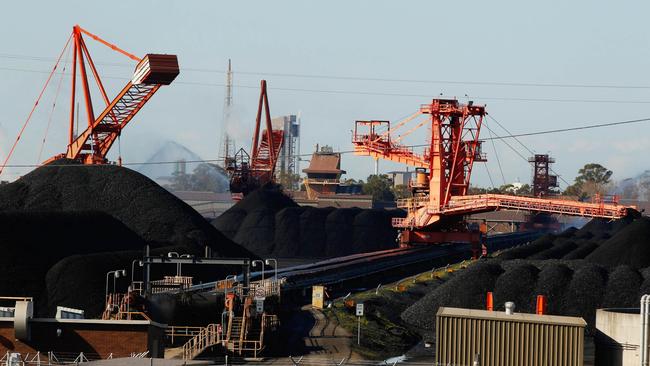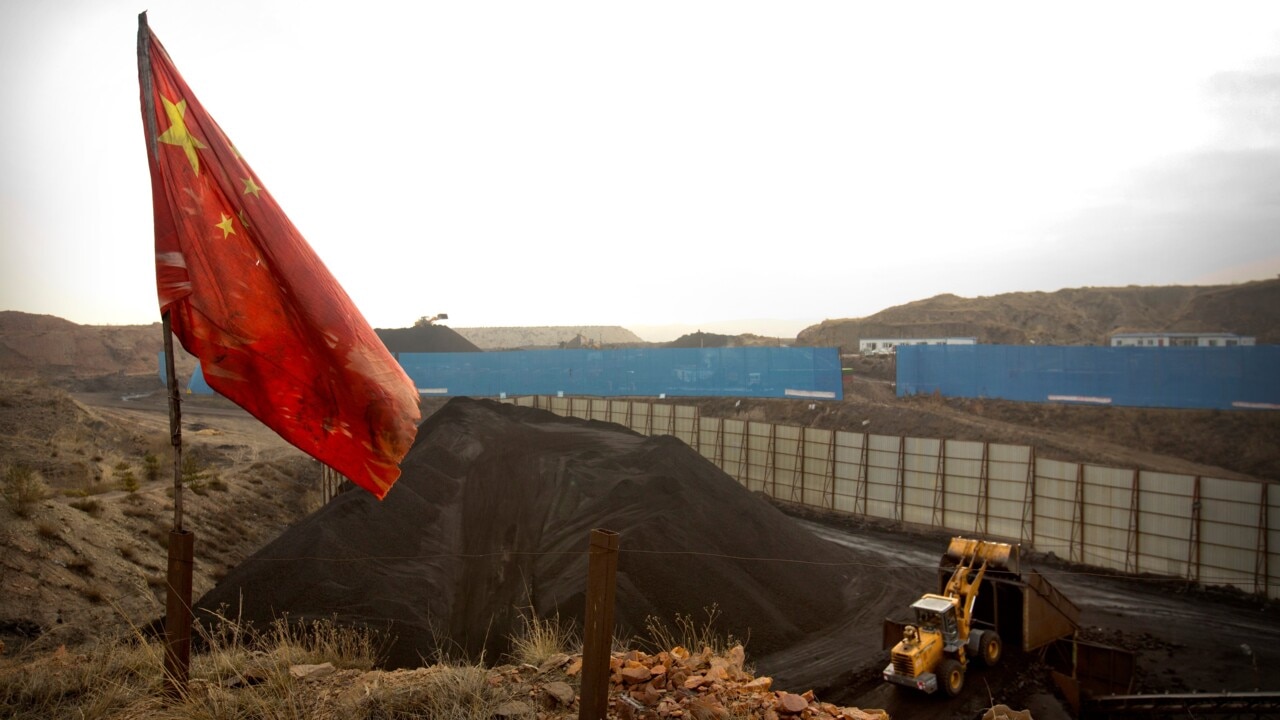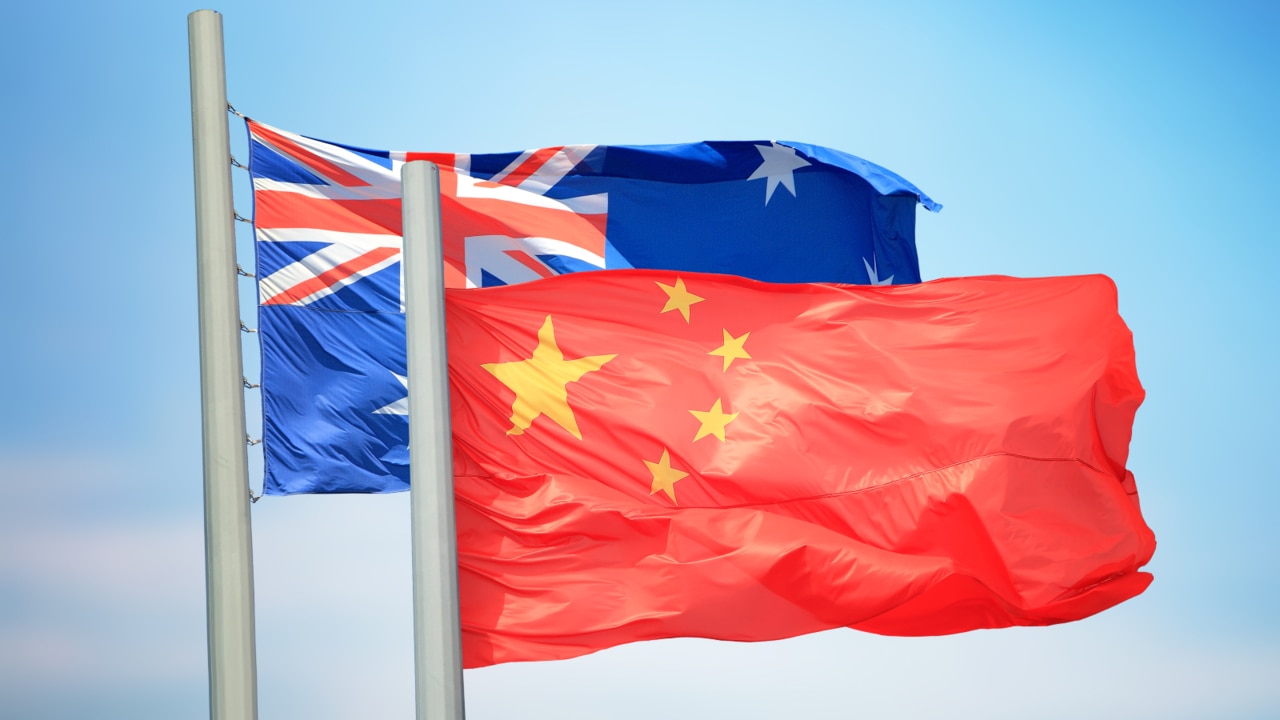China moves to repair ties with Australia by lifting coal ban
Customs officials in the southern province of Guangdong have received notice from the local government that they can clear Australian coal shipments.

China effectively ended a ban on Australian coal that has been a centerpiece of a diplomatic dispute lasting more than two years, in the latest indication that Beijing is taking a less confrontational approach in its foreign policy as the economy struggles.
Customs officials in the southern province of Guangdong on Thursday received notice from the local government that they can clear Australian coal shipments, two people familiar with the situation said. The move comes about a week after the country’s national planning agency permitted a group of large state-owned companies to buy Australian coal again. The Guangdong government didn’t immediately respond to a request for comment.
An easing of the ban isn’t likely to spark a rapid revival in a coal trade that was among the world’s most lucrative. China ramped up domestic production to cushion the ban’s impact and lessen a need for imports. Australian coal prices have surged since Russia’s invasion of Ukraine redrew coal-supply routes, which could keep Chinese demand low. Meanwhile, some Australian miners have grown wary of China, which they no longer see as a reliable partner.
Still, by ending the standoff over coal, which began when Beijing responded angrily to Australia’s call for an investigation into Covid-19’s origins, Chinese leader Xi Jinping is showing a new flexibility in his approach after years of prioritizing the importance of political ideology and control over economic growth.

This reset is happening as China scraps strict zero-Covid measures after nearly three years, which had effectively sealed off the world’s second-largest economy from the rest of the world. Mr. Xi has also sought to manage tension with the U.S., including by meeting with President Biden at the G-20 summit in Indonesia and visiting Saudi Arabia. In November, China agreed to approve BioNTech SE’s Covid-19 vaccines for some foreign residents after Mr. Xi met with German Chancellor Olaf Scholz in Beijing to step up economic ties.
As China pivots toward focusing on its economy to lift growth from pandemic lows, it is likely to need more energy and commodities.
Diplomatic relations between Beijing and Canberra have been steadily improving since Anthony Albanese became prime minister of Australia in May, replacing Scott Morrison, who had positioned himself as a bulwark against China and led the call for the probe into Covid-19’s origins. Mr. Albanese met with Mr. Xi in November and has stressed that Australia’s policy toward China hasn’t shifted even with a change in government.
The coal ban reshaped energy markets and showed how Beijing’s efforts to use its economy as a foreign-policy tool can have limits. After being shut out of China, Australian miners painstakingly stitched together new supply chains and customer relationships, including with India, which they will be reluctant to give up.
Gerhard Ziems, chief financial officer at Coronado Global Resources Inc., which runs coal mines in the U.S. and Australia, said exporters are mindful of the cost and disruption caused by the ban, which Beijing never formally declared was in place. China used to buy roughly a quarter of Australian coal shipped overseas.
“We are all happy that trade flows have readjusted,” said Mr. Ziems. “People don’t want to expose themselves too much anymore. We have seen what happened, and it could happen again.” Other executives have privately expressed a similar view.

China never officially declared a ban on Australian coal, but imports dropped by 85% in 2021. It was the most economically significant of a raft of punitive measures imposed as relations with Australia deteriorated. Exports of barley, wine and lobsters were targeted by Beijing, which was also angered by a new security pact among Australia, the U.S. and U.K. that is aimed at countering its military. Restrictions on those products remain in place.
On Jan. 3, China’s National Development and Reform Commission allowed a small group of state-owned companies including China Baowu Steel Group Corp., China Datang Corp and China Huaneng Group to resume coal imports from Australia, two people familiar with the discussions said.
Soon after, Chinese companies placed orders for Australian coal for the first time since 2020, the people said. The first shipment of Australian thermal coal is set to arrive in China as early as this month, said one of the people.
The NDRC and the state-run entities didn’t return requests seeking comment. China’s ambassador to Australia on Tuesday denied there was an embargo and said it was up to Chinese companies to decide whether to import Australian coal. China is the world’s biggest user of coal and Australia the second-biggest exporter of the commodity, after Indonesia.
Any revival of the coal trade has implications for those exporters that filled the void created by the Australian ban by ramping up sales to China. Indonesia and Russia increased their coal exports to China by 39% and 44%, respectively, in 2021. U.S. coal exports to China that year were more than seven times the level that they were in 2020.
China, meanwhile, has also been producing more coal at home. Output increased nearly 10% between January and November compared with the same period of 2021.
Australia exports both thermal coal, used to generate power, and metallurgical coal that is needed to create steel. BHP Group Ltd. Chief Economist Huw McKay previously said that, before the ban, the metallurgical coal trade between Australia and China was “the sun around which the other planets of the met coal solar system orbited.” That may no longer be the case for Australian exporters. Russia’s invasion of Ukraine has further altered the international coal trade as Europe imposed sanctions on Russian coal, leading countries there to seek new supply, including from Australia.
Ian Macfarlane, chief executive of Queensland Resources Council, an industry group in coal-rich Queensland state, said rising exports over the past two years to India and other Asian countries have cemented relationships. Coal is often sold under long-term contracts.
“These alternative markets to China are now seen by Queensland coal exporters as stable, long-term customers for Queensland coal,” he said.
Analysts at Morgan Stanley think the metallurgical coal trade stands the best chance of recovering. China’s coastal steel mills are likely to want premium quality Australian steelmaking coal again if allowed, which would push U.S. supply back into its original markets, they said.
However, Rory Simington, an analyst at consultancy Wood Mackenzie, said Chinese mills also adapted to cope with the ban, and would face new disruption and cost when switching back to Australian coal.
The Wall Street Journal






To join the conversation, please log in. Don't have an account? Register
Join the conversation, you are commenting as Logout